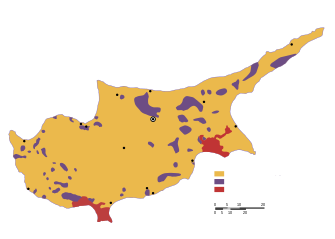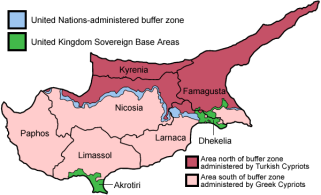This book by John Mueller, published in 2004, posits that war:
“is merely an idea, an institution, like dueling or slavery, that has been grafted onto human existence. It is not a trick of fate, a thunderbolt from hell, a natural calamity, or a desperate plot contrivance dreamed up by some sadistic puppeteer on high. And it seems to me that the institution is in pronounced decline, abandoned as attitudes toward it have changed, roughly following the pattern by which the ancient and formidable institution of slavery became discredited and then mostly obsolete.”
While this may look at first glance like cultural anthropology nonsense, Mueller emphasizes the distinction between war as an institution, fought between state sponsored professional armies, and various forms of violence in general. The tribal violence that ruled human society before agriculture thus is not “war.” There is certainly some truth to this theory, as the past fifty years have seen great peace between the great powers, none of which have fought one another. Mueller cites the example of the Yugoslav wars to show this “decline of war.” The Yugoslav wars were quite unlike Europe’s wars earlier in the century. The politicians were willing to wage war, but young men were reluctant to show up. They eventually were forced to turn the war over to groups of thugs, mercenaries and even criminals released from prison in exchange for service. “The remnants of war” refers to these type of wars, wars fought by “criminalized” regimes and armies of mercenaries and thugs. Mueller emphasizes that these wars are entirely capable of creating great human misery, but they cannot hope for victory against professional armies, those in “criminalized” forces are rarely willing to die for any “cause” and they are usually poorly-trained. The book’s cover photo was taken during the Yugoslav wars:

Mueller’s theory focuses on differences in culture and attitudes toward war, rather than economic and military factors, to explain this decline in war. It is here that I believe his thesis fails.
In 1914 the rulers of France, Germany, and Russia honestly believed that the war would be a short one, and there was no specter of destruction of cities. Many really did believe the war would be over by Christmas. Suppose the rulers of the Soviet Union and China, circa 1970, had believed that their disputes with the West, or with each other, could be solved in a half-year long war with no damage to the homeland’s cities. Would they have gone to war? It’s quite possible. If our rulers are much more inherently averse to the use of war than those of the past, it is, I believe, a development that has occurred much more recently.
Mueller calls the process whereby nations drop out of “the war system,” where they avoid maintaining large armies and rely on their neighbors’ respect for their neutrality for protection, “Hollandization.” In pre-modern times, such behavior was suicidal,(unless you pay tribute to some other state for protection) but it became possible gradually in Europe from the 18th century on, with first the rightful claims of monarchs, than the sovereignty of “states,” assuring the independence of smaller territories amid giants such as France and Germany. European nations were much less likely to respect the sovereignty of non-European states, thus you saw wars of aggression and colonization. Nevertheless, one can observe a process of Hollandization there as well. There’s a spectrum between, on the one hand, the tributary state, a common situation in antiquity, and the modern Hollandized state which is fully independent but hosts American military bases. Many nominally independent states which we see as having been “colonized” fell along this spectrum. Examples include Egypt, Tunisia, Morocco, Kuwait, Iran, and various Indian “Princely states.” Typically, colonizing states did not demand tribute payments but did demand access to the “colonial” market, and sometimes meddled in colonial affairs in order to assure repayment of loans or protection of foreign missionaries or domestic minorities. These states became “Hollandized,” they did not maintain militaries beyond what was considered necessary for internal policing, and, when their “colonial protector” went to war, they remained officially neutral, in some cases, even if they were being invaded. While the great powers were sinking huge budgets into warships, bombers, ect, these states often maintained armies that were smaller than they had in previous generations, even as these countries were relatively wealthier.
The center of this Hollandization was in the Middle East. During World War II, as Italy, Germany and Britain were fighting in the Egyptian desert, the Egyptian state remained neutral, no Egyptian troops took part in the fighting. The French protectorates of Morocco and Tunisia had a similar experience. In Iran, the Iranians refused British-Soviet demands to intern the German population, but once the Anglo-Soviet retaliatory invasion started, there does not appear to have been any resistance to the invasion. Only in Iraq was there widespread fighting, they lost the war against Britain within a month.
Another area where a type of Hollandization started to occur was Latin America. Though it featured often brutal civil wars, there were few interstate wars after 1900.
The fact that Hollandization occurred in areas outside Europe, areas which were not very culturally modern and whose people never read the anti-war European intellectuals, tells me that it was the absolute military dominance of the Great Powers, not cultural change, which lead to Hollandization.
The Perils of Hollandization
Hollandization is good, in some respects. War is hell, as a famous general said. But whether a nation will have a pleasant experience with it will depend on what kind of neighbors it has. Hitler planned to annex the Netherlands into his “Greater Germanic Reich” which would mean the end of the Dutch state and the eventual drafting of Dutch males to fight in Germany’s future wars. Luckily, Britain and France had no such designs. But what if all your neighbors are predatory, or if the non-predatory ones won’t defend you? The Greeks and the Arabs are two nations which partially Hollandized and saw long-term defeat as a result.
It was largely because of this “withdrawal from the war system,” that the Arabs would lose modern-day Israel. At the time of the 1949 Israel-Arab war, the Jews had not more than 750,000 people in Palestine. Egypt had 19 million, Syria had 3.2 million, and the Palestinians themselves had 1.2 million. Israel drafted everyone they could. By the end of the war, they had ~110,000 men[[Edit: women too]] in arms. The Arab side, at their maximum, could field just 60,000 men. A revealing anecdote about this failure to harness their potential was recorded by the British ambassador to Jordan, Alec Kirkbride. After thousands of Palestinians were expelled from the towns of Lydda and Ramle, the refugees fled to Jordan. Some confronted the Jordanian King:
“A couple of thousand Palestinian men swept up the hill toward the main [palace] entrance … screaming abuse and demanding that the lost towns should be reconquered at once … The King appeared at the top of the main steps of the building; he was a short, dignified figure wearing white robes and headdress. He paused for a moment, surveying the seething mob before, [then walked] down the steps to push his way through the line of guardsmen into the thick of the demonstrators. He went up to a prominent individual, who was shouting at the top of his voice, and dealt him a violent blow to the side of the head with the flat of his hand. The recipient of the blow stopped yelling … the King could be heard roaring: so, you want to fight the Jews, do you? Very well, there is a recruiting office for the army at the back of my house … go there and enlist. The rest of you, get the hell down the hillside!” Most of the crowd got the hell down the hillside.
One can’t help but think of the current “refugee” crisis, able bodied Syrian men fleeing to Europe, proclaiming that there is nothing they can personally do to fix their country. Had the Arabs drafted much larger proportions of their population, say, 750,000 troops, they would have stood a very good chance at winning. The Jews in Israel(they weren’t “Israelis” yet) did not have an advantage in technology or weapons. Not all Israeli troops were veterans, and, as they say, quality has a quantity of its own. It’s doubtful that the “international community” wouldn’t have done anything about it.
Hollandization failed the Arabs, and, in the 1967 war, they learned from it, deploying a total of 240,000 troops, giving them an advantage in men on the battlefield over the Israelis. They would have deployed more, had they had time to do so. In the 1973 war, they deployed even more. Egypt, which had sent just 20,000 men to Palestine in 1948, was able to get 200,000 men across the Canal in their ultimately unsuccessful attempt to retake the Sinai Peninsula. But they had waited too long, and now faced an organized state. In this relatively even battlefield, the Israelis were just a lot better at fighting. Today, much of the region has gone back to the pre-1948 “Hollandized” pattern of army whose goal it is to keep internal order, with no ability or inclination to fight outside its own borders.
The Greeks and Turks had seen a history of wars which ended in 1922 after the Turkish victory, with the expulsion of almost the entire Greek population of Turkey and a smaller number of Turks from Greece. This had followed earlier expulsions, mainly of Turks, from the new Christian states in the Balkans. The one area where this process of “population exchange” did not take place was Cyprus, it was ruled in 1922 by Britain. Greeks had roughly 80% of the population, they wanted the island to unify with Greece, Turks wanted the island to be partitioned. A partition would be difficult as the Turkish majority areas were scattered throughout the island. An independent “inclusive” state was created which satisfied neither side.

Greeks in yellow, Turks in purple, British military bases in red
After World War II, Greece became “Hollandized,” despite the fact that it was richer than Turkey, the latter, with a larger population, spent more on its military and by 1974 possessed obvious superiority. That year, following a coup by nationalist Cypriot Greeks, the Turks simply invaded the island, expelled Greeks and created their Turkish state on the northern 34% of the island.

Cyprus divided
Had they invested more in their military in the preceding decades, they could have fought and had a chance, but they didn’t, and ultimately made no resistance to the Turkish invasion. The Greeks today have succeeded in isolating North Cyprus internationally, but this has not gotten the Greek Cypriots their land back.
Kuwait was an example of a state where Hollandization almost failed. There were many in America, like Patrick Buchanan, who opposed the Gulf War. Had America not intervened, the state, with it’s large oil reserves, would have been annexed to Iraq. Though I count myself as a non-interventionalist, I feel that that kind of unprovoked interstate aggression should not be tolerated.
The example of the Greeks and the Arabs are exceptional, in general, Hollandization has worked well for most countries which have tried it. Still, laying back and relying on appeals to “international opinion” won’t always get you the best deal possible if you are faced with an enemy like Turkey, a medium sized state with a strong enough military to beat you and avoid being pushed around by the great powers.
The current situation in Ukraine reflects these themes. On the one hand, the War in Donbass is a quintessential “remnant of war.” One way you can measure this objectively is look at the population of soldiers fighting and compare it to the total population, then compare this ratio to that of the powers who fought in WWI or WWII. In modern times, it should be possible to draft an even larger percentage of the population into the army. Yet look at the Ukrainian army fighting in Donbass. Ukraine has about 46 million people and, in Donbass, an estimated 64,000 are fighting. In WWI, Italy had around 36 million people and had around 5,600,000 soldiers. These comparisons are never airtight, with the distinction between drafted and deployed, and between those fighting at one time and those who fought over the entire period of war, nevertheless, the disproportion is so large, 2 orders of magnitude, that it wouldn’t make much of a difference. The Russian/Donbass side is similarly small compared to its potential. Among the fighters of both sides, mercenaries and wackjobs are well documented. And yet, in Crimea, it is the professional Russian army that is occupying the place. They took it with no resistance and there seems to be little hope of its return to Ukraine. The Ukrainian army can’t hope to fight back. It is partially Hollandized, having given up its nuclear weapons in a decision they now surely regret. The US and UK were supposed to guarantee Ukraine’s territorial integrity. How is that working out for them?
Russia hasn’t completely gotten away with it, the sanctions have stinged. And Crimea isn’t a great benefit to Putin or the Russian people. It has no oil and was poorer than Russia, imposing a burden on the Russian economy to bring it up to the Russian level. I am skeptical of the claim that Putin wants to restore some type of “Eurasian” neo-Soviet Union. Maybe he thinks in a perfect world that would happen, but look at Belarus. Many Belorussians want to join Russia, they already largely speak Russian, yet it appears to me that Putin has not done anything serious to facilitate this. Belarus, like Crimea, is poorer than Russia, containing no oil. Why, then, did Putin annex Crimea? His hand was forced by the need to save face after the Ukrainian coup revolution.
The lesson that Ukraine, Cyprus, and Palestine teach us is that if you have a competent enemy, you shouldn’t Hollandize and them provoke them into attacking you. “International law” won’t save you. But for most of the world, Hollandization works fine and will continue to do so. The first half of the 21st century is likely to continue the late 20th century pattern of mostly “remnant” wars. There’s not much to fight over and men seem reluctant to fight. Peace will reign outside Africa and the Middle East. I don’t forsee the Ukraine crisis getting any bloodier.




